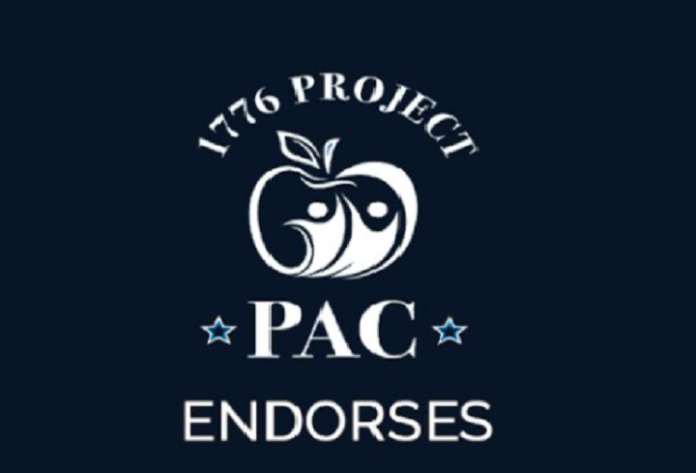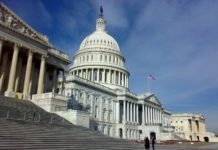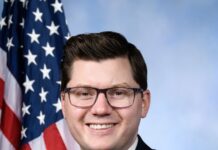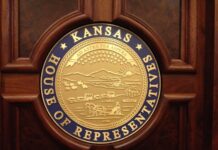A national political action committee that backed candidates who opposed critical race theory won better than 75% percent of its races nationwide, including most of its campaigns in Kansas.
The 1776 Project PAC, led by political strategist Ryan Girdusky, won 43 out of 57 campaigns it ran in seven states, including Kansas, Minnesota, Colorado, New Jersey, Pennsylvania, Ohio and Virginia.
Raising about $440,000 this year, the PAC won eight out of 13 races in Kansas, all 11 races in Colorado and 13 out of 17 races in Pennsylvania, according to unofficial election results reported in those states.
Some of those outcomes are still fluid – such as one in Olathe – and they can change as mail ballots are returned and provisional ballots are counted.
The PAC won four out of seven races in Johnson County and all three races for the school board in Lansing.
The PAC prevailed in one of three races in Andover, where former U.S. Secretary of State Mike Pompeo’s endorsed candidate defeated one supported by the 1776 group.
“I think the national mood played a hand,” Girdusky said of his PAC’s success.
“Republicans are very motivated and independents have soured on Democrat governance,” Girdusky said in an interview.
Couple that with an emerging national debate over classroom curriculum and it proved a winning formula, even in areas of the country that lean blue, he said.
“Curriculum in school board elections are a national conversation that they weren’t two years ago,” he said.
Girdusky pointed that out they won in Democratic areas, such as Montgomery County, Pennsylvania, where the PAC won seven races in an area that President Joe Biden won with a margin 50% larger than Hillary Clinton in 2016.
The PAC also won three school board races in Passaic County, New Jersey, where Democratic voters double Republicans and Biden beat Donald Trump by about 17 percentage points.
It also won a school board race in Cherry Hill, New Jersey, where Biden won with 66% of the vote last year.
“These aren’t Republican bastions,” Girdusky said. “These are areas where Republican struggle, especially recently.”
While it may not have been intended as such, the message on critical race theory was seen as a table-setter for next year’s legislative elections after a session when lawmakers will have likely taken votes on the issue.
While critical race theory has bubbled up as one of the hottest issues in Kansas politics this year, it’s not expected to recede into the shadows, with legislation addressing the issue expected to be introduced for the 2022 session.
“I think people are very much in tune with the CRT issue,” said Kansas Republican Party Chairman Mike Kuckelman.
“It’s an important issue to parents. I expect we’re going to see it again next year in the races. It’s an issue that’s going to stick with us for a while,” he said.
Critical race theory, developed by legal scholars more than 40 years ago, suggests that racism is more than just an individual bias but is rooted in policies for criminal justice, health care and housing, among other things.
Lawmakers advocating for limits on critical race theory nationally say it’s being taught in a way that fosters divisions among students, although school districts are rebutting the idea that it’s part of their curriculum.
Last July, the Kansas State Board of Education issued a statement that said the critical race theory is wrongly confused with educational equity.
The board said that CRT is not, and has not been, part of Kansas’ academic standards.
However, some Republican lawmakers weren’t persuaded by the board’s statement while others say CRT is more comparable to diversity, equity and inclusion issues.
It’s anticipated that several bills addressing CRT will be introduced for the upcoming session that could lead to votes that will show up in next year’s elections.
Democratic political consultant Bryan Behgam believes the CRT campaign during the school board races served as a messaging test for the issue.
He believes the issue could return during the 2022 elections and could be employed the same way that Republicans successfully used “defund the police” in some races last year.
“They had some success around it in Blue Valley and Olathe,” Behgam said of critical race theory. “It’s another bogey man issue to activate their base.”
It was a view shared by former National Democratic Committeeman Christopher Reeves, who said the issue may play better in some areas than others.
He also warned that it will be an issue at the Capitol that could find its way onto postcards when House members are up for reelection next year,
“You’re going to see several different pieces of legislation come up about this that try to tackle it in different ways,” Reeves said.
“They’re going to take multiple bites of the apple to get as many votes as they can for Democrats to vote on the issue,” he said.
“The question is going to be: How well can Democratic electeds turn the issue around and force Republicans to take votes that they don’t want to take,” he said.
Reeves noted that while CRT may have been successful in southern parts of Johnson County that tend to be more Republican, it failed in the Shawnee Mission School District where incumbent Heather Ousley received about 60% of the vote against a candidate supported by the 1776 PAC.
“In areas where you’ve already got a Republican tilt, it drives up Republican turnout,” he said.
“In areas where there’s a mix, it motivates Democrats to turn out as much as it does Republicans,” he said.
Republican consultant Jared Suhn suggested there’s something more motivating voters than just the concept of critical race theory.
“CRT clearly motivates voters, but what voters really responded to the most were messages of keeping parents involved and listening to their concerns,” Suhn said.
Judith Deedy is executive director for the public-education advocacy group Game On for Kansas Schools.
She noted that her school district – Shawnee Mission – turned back the PAC’s attempt to defeat Ousley.
She worries the issue could return next year, hoping the more it’s discussed the more voters can be educated about the issue in the coming months.
“They’ve learned that playing off of a catchy, scary phrase works for them, and we’re going to keep working on breaking that down so that we can have an honest discussion about what’s really going on.
“I don’t think people will really be as worried when they see what’s really going on.”















